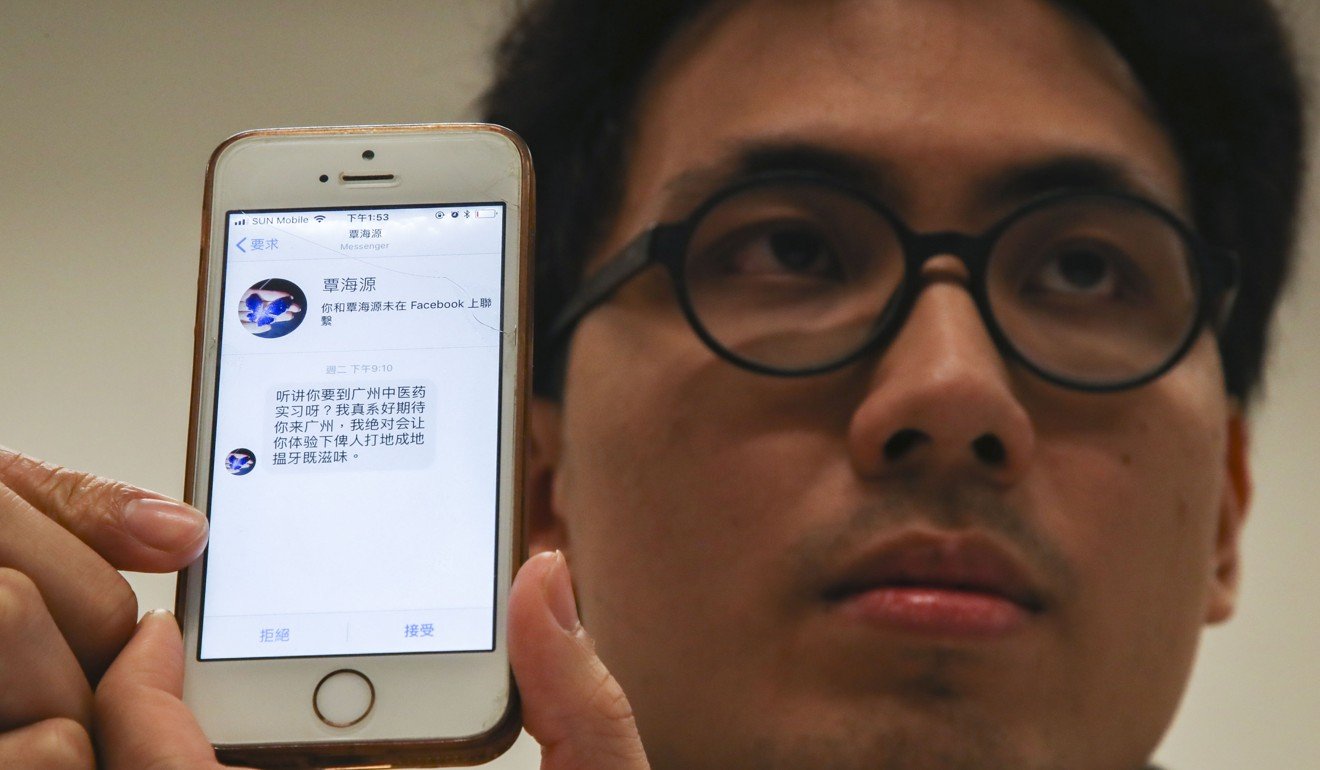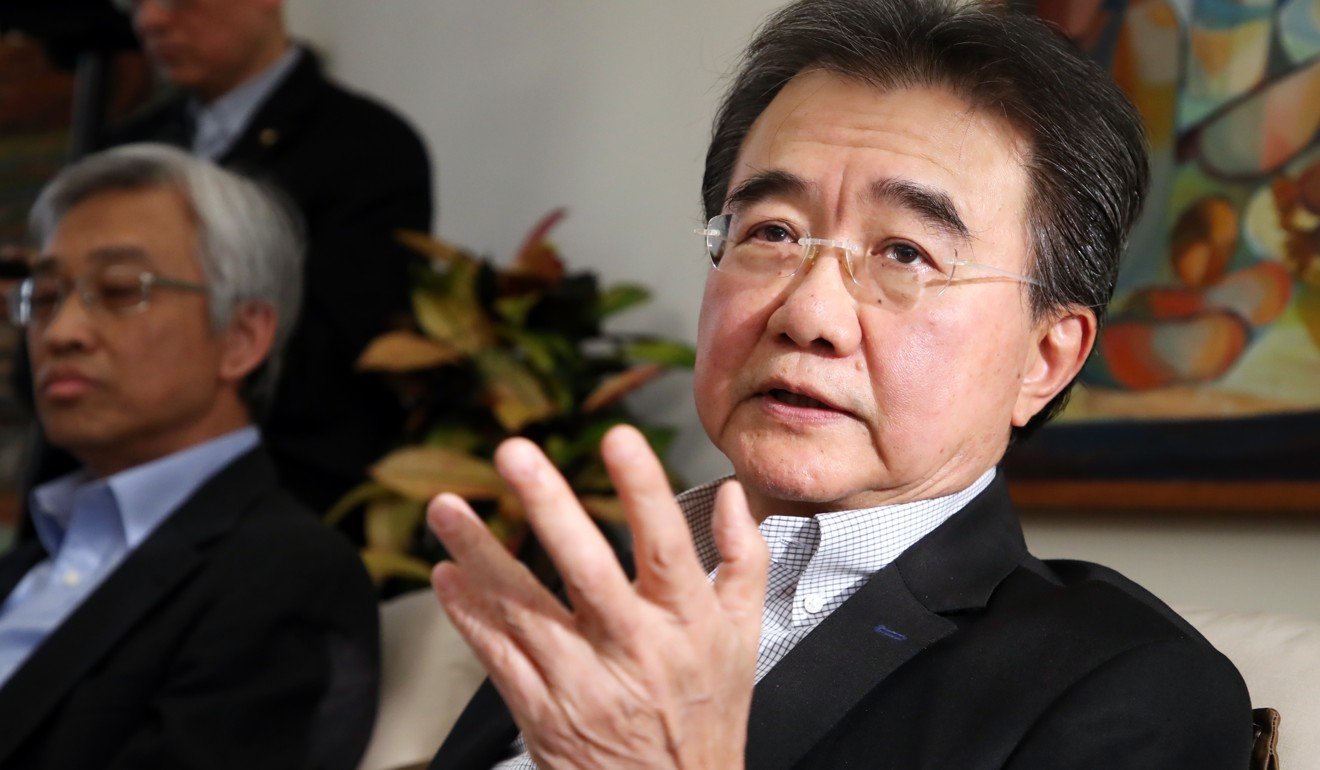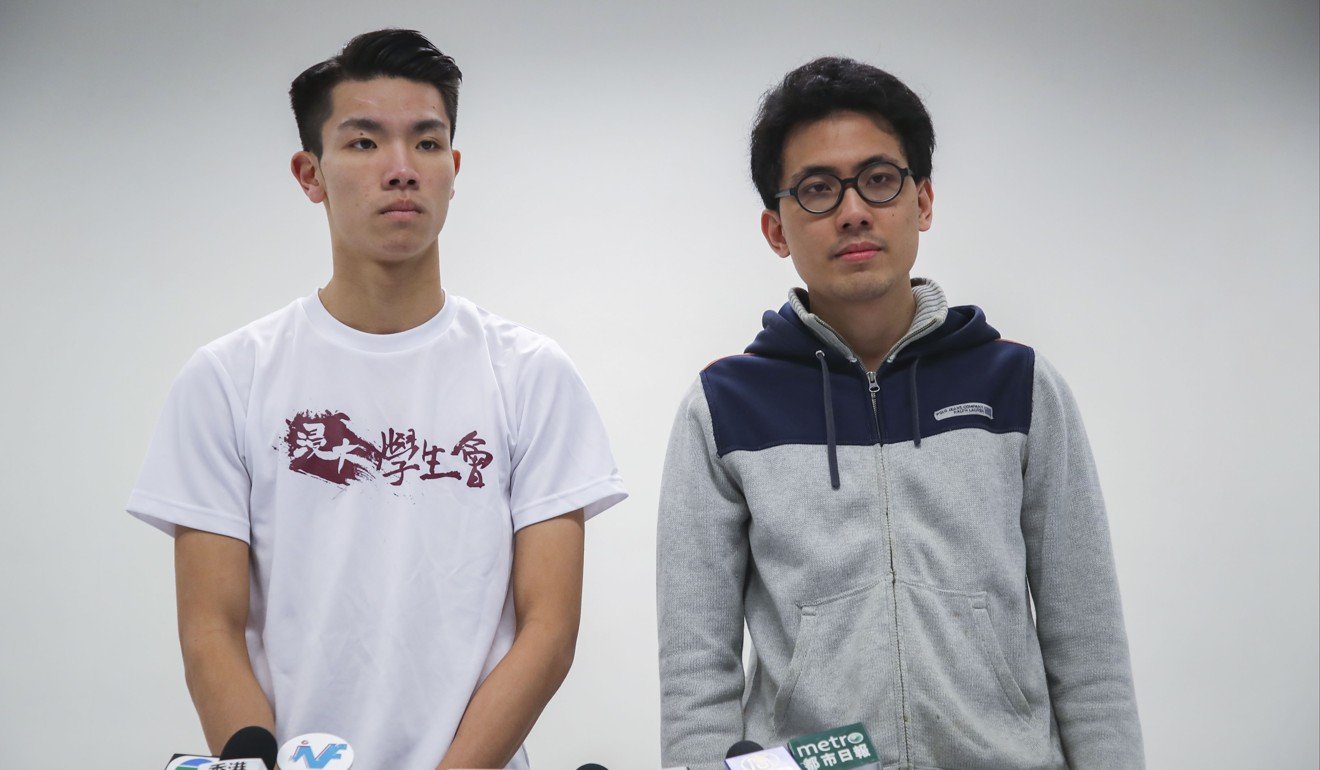
How a compulsory Mandarin course caused chaos at Hong Kong Baptist University
A Mandarin proficiency requirement for graduation sparked an eight-hour stand-off between staff and students last week, unleashing a chain of events from death threats to the suspension of two students
An eight-hour stand-off between students at Hong Kong Baptist University and staff at the school’s Language Centre last week unleashed a chain of events that peaked with death threats against one of the youngsters, and the suspension of two students.
Expletive-laden posters insulting Baptist University head Roland Chin put up at Hong Kong campuses
About 30 youngsters headed to the centre after many students failed a Mandarin proficiency test that would allow them to bypass a compulsory course.
Video footage circulated online showed student union president Lau Tsz-kei using foul language and others confronting staff aggressively.

On Wednesday, university president Roland Chin Tai-hong tearfully announced that Lau and Chan would be temporarily suspended from their studies, as their behaviour was against the school’s code of conduct for students.
“Initial investigations found the students’ conduct on the day resulted in our teachers feeling threatened and insulted, affecting their work,” Chin said.

The news prompted student unions of several other institutions – including the University of Hong Kong and Chinese University – to issue a joint statement condemning Baptist University’s decision to suspend students before fully completing its investigation into the incident.
Here is why students were unhappy enough to storm the centre, and a look at whether their actions were motivated by a political agenda.
Suspended Hong Kong student union chief will still try to go to classes, as Mandarin requirement row rolls on
What made students protest?
Baptist University last year introduced a proficiency test for students seeking exemption from a compulsory Mandarin course.
Recently released results showed that 70 per cent of test takers failed it. Some students pointed out that those who failed included a student who is an ambassador for the language at the school.
They questioned whether the test was too difficult or evaluation was too harsh, with some charging that there was a lack of transparency, as the marking scheme was only made public last week, months after the test was conducted.
Cantonese or Putonghua in schools? Hongkongers fear culture and identity ‘waning’
At the heart of the matter seemed to be students’ unhappiness at being required to study Mandarin to graduate. Many believe that the school should trust that they are wise enough to decide what courses to take, with others feeling that they only need Cantonese and English in Hong Kong.

Lau said university management frequently used excuses to avoid discussing the Mandarin requirement, adding that the dialogue on Tuesday was a positive result of the eight-hour stand-off.
Opinion: Rowdy students must learn lesson
Why is Mandarin a requirement for graduation?
The institution implemented the requirement in the 2007/2008 academic year, in keeping with its emphasis on giving students the necessary skills to study, work, have cultural exchanges and a social life.
Baptist University said this was also in line with the city’s education policy to ensure students are proficient in written English and Chinese, and spoken Cantonese, English and Mandarin.
But in most local public universities, Mandarin is not a compulsory course. Lingnan University students, though, have to pass two compulsory Mandarin modules to graduate and they do not have the option of taking an exemption test.
Explain pro-Beijing university president’s new five-year term, Hong Kong students warn, or face ‘consequences’
What’s likely to happen next?
While the two youths were suspended from school, Chin said that, based on current investigations, the other students involved in the protest had not seriously violated the school’s code of conduct, so it would not take action against them just yet. He said that it would take a few weeks for the university to complete its disciplinary proceedings.

Is the latest incident linked to pro-independence activity on campuses?
But Lau maintained that students did not have negative feelings towards the language but, rather, were angry that the course was compulsory.
Chan described himself as a local culture conservationist, saying he did not support Hong Kong independence and was not a “localist”. He founded Cantonese support group Societas Linguistica Hongkongensis in 2013 to promote the use of Cantonese as a counter-movement against the increasing prevalence of Mandarin.
Teaching Chinese in Mandarin blamed as Hong Kong pupils struggle with higher level reading skills
So what now?
Lau and Chan said Chin was “heartless” for suspending them. Lau said he did not see how his actions had made staff feel unsafe, while Chan said Chin was more interested in punishing him than in his safety. He described the calls and the death threats he received via Facebook as “extremely terrifying”.
While Lau apologised for his actions, he stressed that the student union would continue lobbying for the removal of the compulsory Mandarin course.
He said university administrators at the dialogue admitted that the test results did not provide a full picture of the students’ Mandarin ability and the university would need more information to make a decision on the course being a graduation requirement.
The school’s vice-president for teaching and learning Albert Chau Wai-lap said the school would consult different stakeholders in its review of the requirement.

